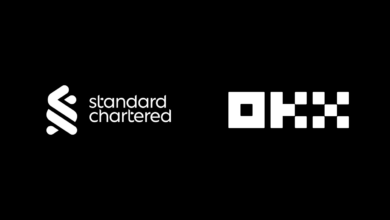Tokenization in the era of Blockchain 2.0

Blockchain 2.0 and Enterprise Blockchain have been evolving tremendously for the last 5 years. One of the business values offered from this evolution is the birth of Asset Tokenization using Blockchain; it has become a key digitalization of investments trend since 2018. What are some of these Assets which can tokenized? You can tokenize real estate, gold, diamonds,paintings, company stocks and other physical assets.
What does it mean to tokenize an asset such as Real estate using the Blockchain and what are the business benefits associated with it? Let’s take the example of investor who wants to invest in real estate but with an initial investment of $100 or $1,000 USD (or Euros). Moreover, this investor(s) may also want to also do it gradually (example $80 USD / month). With traditional real estate investment and market this is quite difficult. We maybe only left with the option of a mutual fund or a time share (which may have higher entry cost levels, aggressive commitments and higher administration fees). This same investor may also want to liquidate a portion of this investment quickly. This will provide this investor with immediate cash; satisfying his liquidity requirements. Once again using traditional real estate investments immediate liquidity is quite difficult or nearly impossible.
Tokenization and fractional ownership is created using both blockchain technology and appropriate governance and regulations. Only regulated market provides a secure, and transparent method that convert real estate ownership rights of this asset into a digital form represented by a blockchain token. The Tokenization process allows for the fractional (or partial) ownership of this Real estate asset. Each issued and then token represents a digital form: proportional and fraction share of the underlying asset. The Real Estate Token can be issued on a Private or Public blockchain. The Token is administered and protected by a smart contract (which establishes the rules of issue, buy, sell, transfer of ownership, etc.…). To give these Real Estate Tokens liquidity, immutability and transparency we list them on several regulated Digital Asset Exchanges allowing their value to fluctuate and represent their true market value.
One key requirement to enable this system is Regulated Market Authority; several jurisdictions have established the rules for operating this Real estate Asset Tokenization. These Real estate Asset Tokenization are disrupting the more traditional financial industry and enabling newer Fintech and DeFi (Distributed Finance) solutions. Their fast pace of evolution continues to gain fast market acceptance.
The key benefits of the Asset Tokenization include, Greater liquidity, Faster & Cheaper transactions, More transparency and Greater Accessibility & Shorter Lockup Period
Beyond Real Estate Asset Tokenization other extended Enterprise Blockchain applications can also be added and take usage to benefit the real estate industry. Some of these applications and use cases include, Property Search, Property Financial Valuation, Property Management, Title & Deed Management, and Financing and Payment Systems
What is required to and must be considered in order to take part in the Real Estate token digital based economy, A proper Business Model, Platform Integration
- Blockchain
- Existing Registries
- Cyber Security
- ISO27001
- ISO22301
- GDPR
- Governance & Compliance
- Mifid II (European Union packet of financial industry reform legislation)
- AML (Anti Money Laundering)
- KYC (Know Your Customer)
- Jurisdiction & Regulatory Framework
- Regulatory Sandbox (Bahrain, UAE, Estonia, Zug, Malta, others)
- Graduated Licenses
- Proper Legal Frameworks
The implementation maturity and acceptance of this structured approach will achieve the initial objectives of greater liquidity and market access with control of risk, security and transparency.





